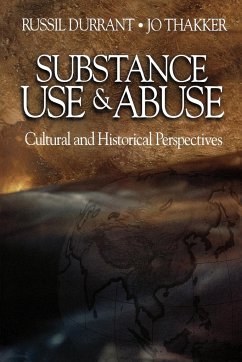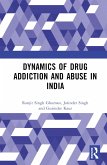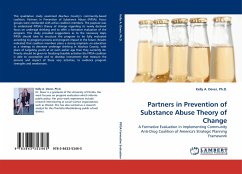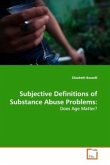Substance use and abuse are two of the more frequent psychological problems clinicians encounter, both in isolation and in the context of other disorders. Mainstream approaches focus on the biological and psychological factors underpinning drug abuse, but to fully appreciate the issue, we also need to attend to the social, historical, and cultural variables that provide a contextual base. The authors' primary goal is to explore thoroughly such cultural and historical approaches. Such an approach has much to offer in terms of enriching our understanding of why people use drugs and in elucidating the nature of substance-abuse problems. They also demonstrate how such an approach can be integrated within a mainstream biopsychosocial perspective. In so doing, they hope to illustrate how explanations drawn from different levels of analysis and different disciplinary perspectives relate. Features/Benefits: - integrates components from biological variables, psychosocial variables, cultural-historical variables, and the self, providing multidisciplinary perspective. Locating drug abuse in wider historical and cultural contexts allows clinicians to evaluate more clearly the constellation of factors responsible for drug-related problems - illustrating the value of a cultural-historical perspective in conceptualizing, preventing, and treating substance abuse problems also serves to highlight consequent public policy implications. - chapters open with introductions and conclude with summaries and end notes to frame the content of each chapter for students.
Hinweis: Dieser Artikel kann nur an eine deutsche Lieferadresse ausgeliefert werden.
Hinweis: Dieser Artikel kann nur an eine deutsche Lieferadresse ausgeliefert werden.








